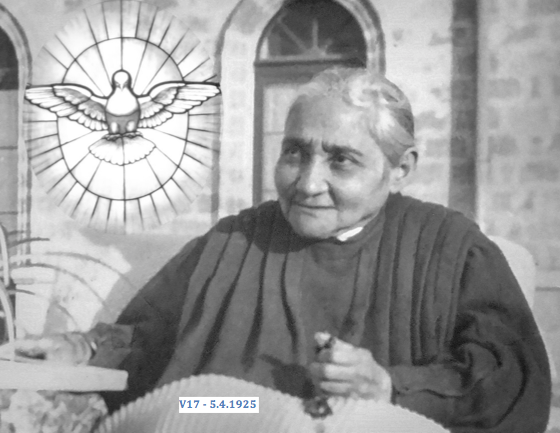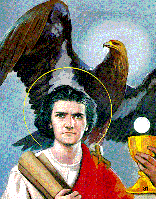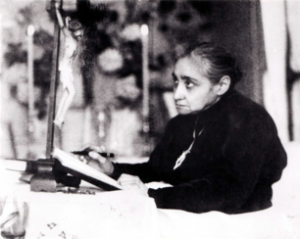St. John, Apostle and Evangelist
To St. John we owe a Gosple, three Epistles and the Apocalypse, with the most beautiful pages on the Divinity of the Word made flesh; for this reason he is symbolized by the eagle which soars in the heights. On the Cross Our Lord Jesus Christ entrusted His Most Holy Mother Mary to St. John: “Woman, behold thy son.”
St. John only escaped a violent death by the special protection of God, and which made many believe that the beloved disciple would not die. Actually he did not depart this life until all the other apostles had passed away.
The following selections are from the EWTN website on St. John the Apostle and Evangelist (click here to view it in its entirety):
The great love which St. John bore to his God and Redeemer, and which he kindled from his Master’s Divine breast, inspired him with the most vehement and generous charity for his neighbor. Without the sovereign love of God no one can please Him. “He that loveth not, knoweth not God, for God is charity.” [I John 4: 8] “Let us therefore love God, because God first hath loved us.” [I John 4: 19] This is the first maxim in a spiritual life, which this apostle most tenderly inculcates. The second is that our fidelity in shunning all sin, and in keeping all God’s commandments, is the proof of our love for God, [I John 3, 4, etc.] but especially a sincere love for our neighbour is its great test. “For he that loveth not his brother whom he seeth, how can he love God whom he seeth not?” says St. John. [I John 4: 20]
St. John teaches us that to attain to this heavenly and Christian disposition, to this twofold charity towards God and towards our neighbour for His sake, we must subdue our passions and die to the inordinate love of the world and ourselves. St. John’s hatred and contempt of the world was equal to his love of God, and he cries out to us, “My little children, love not the world, nor the things which are in the world. If anyone loves the world the charity of the Father is not in him.”
Book of Heaven
10/9/21 – Vol. 13
In the last Supper Jesus gave Luisa the place of honor between Himself and St. John. He gave Himself as food to all, in order to receive food from all. The will of man is that which makes him more like His Creator. The human will is the depository of all the works of man.
I was thinking about the act in which Jesus had the Last Supper with His disciples, and my lovable Jesus told me in my interior: “My daughter (Luisa), while I was having supper with My disciples, I was surrounded not only by them, but by the whole human family. I had all creatures near Me, one by one; I knew them all, and I called them by name. I (Jesus) also called you (Luisa), and I (Jesus) gave you the place of honor between Me and John, constituting you (Luis) the little secretary of My Will. And as I divided the lamb, in offering it to My Apostles, I gave it to all and to each one. That lamb, bled dry, roasted, cut to pieces, spoke about Me; it was the symbol of My Life and of how I was to reduce Myself for Love of all. And I wanted to give it to all as delicious food, which represented My Passion, because everything I did, said and suffered was converted by My Love into food for man. But do you know why I called everyone and gave the lamb to all? Because I too wanted food from them. I wanted everything they would do to be food for Me. I wanted the food of their love, of their works, of their words – of everything.”
And I: ‘My Love, how can it be that our works become food for You?’
And Jesus: “It is not on bread alone that one can live, but on everything to which My Will gives virtue of making one live. If bread nourishes man, it is because I want it so. Now, whatever the creature disposes with her will to make of her work – that is the form which it assumes. If with her work she wants to form food for Me, she forms food for Me; if Love, she gives Me Love; if reparation, she forms reparation. And if in her will she wants to offend Me, she makes of her work the knife to wound Me, and maybe even to kill Me.”
Then He added: “The will of man is that which makes him more like His Creator. In the human will I placed part of my Immensity and of my Power, and giving it the place of honor, I constituted it queen of the whole of man and depository of all of his works. Just as creatures have chests in which they keep their things to maintain them secured, the soul has her will in which to keep and secure all that she thinks, says and does. Not even one thought will be lost. What she cannot do with her eyes, with her mouth, with her works, she can do with her will – in one instant she can will a thousand goods and a thousand evils. The will makes her thought fly up to Heaven, to the farthest places and deep into the abysses. She might be prevented from working, from seeing, from speaking, but she can do all this in her will. Whatever she does and wants, forms an act which remains deposited in her own will. Oh, how the will can be expanded! How much good and how much evil can it not contain? This is why, among all things, I want the
The future ruler of Israel, will be born in Bethlehem,
a name that means “House of Bread”
will of man: because if I have this, I have everything – the fortress is conquered.”


